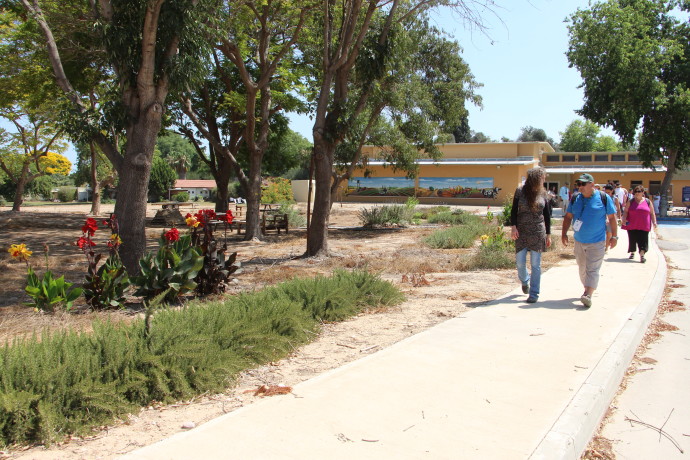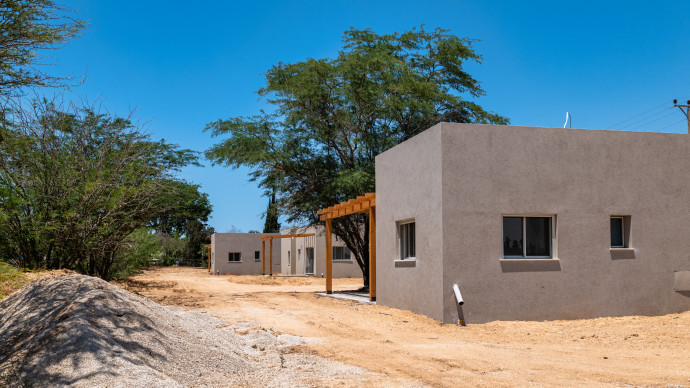The roots of KKL-JNF’s development of Israel’s western Negev communities run deep, explains Elisha Mizrahi, manager of KKL-JNF’s Friends of Israel Department. In 1943, KKL-JNF assisted in purchasing land in the Negev, and three years later, in 1946, eleven kibbutzim were established in one night, on the evening following the end of Yom Kippur, with the support of KKL.
Since that time, Mizrahi says, KKL-JNF has been fully engaged in turning the villages and kibbutzim of the Western Negev into a vital and resilient area, helping to develop the land for building and agricultural use, locating and utilizing sources of water, and conducting innovative research and development throughout the Negev.

“The moment that the decision is taken to establish a new community in the Negev,” says Mizrahi, “we go in and prepare the plots of land where the houses and public buildings will be constructed.” Using tractors and heavy machinery, KKL-JNF moves large amounts of earth to prepare the area for building and agricultural development.
With its acquisition and land development in the Negev, KKL-JNF became one of the world’s leading organizations in desert forestry and learned how to store water from the infrequent desert rainfalls to help make the desert bloom.
“The many colors found in the Negev today are different than what there was sixty years ago,” says Mizrahi. As a result of KKL-JNF research, many different varieties of trees - which were never before planted in the Negev - now flourish, including fig, carob, pomegranate almond, and date trees. Mizrahi adds that KKL-JNF has shared its knowledge in desert forestry with the world, and KKL-JNF experts help African nations employ similar techniques in their arid areas.

KKL-JNF helped make western Negev an enjoyable place to live and created 450 kilometers of bike paths in the area. The Beeri Singletrack, developed by KKL-JNF, is the first mountain bike park in Israel, and the Beeri Forest in the Besor region has numerous mountain biking trails.
While the tragic events of October 7 have cast a shadow on the communities of the western Negev, Mizrahi foresees the day when the kibbutzim will once again flourish through the continued assistance of KKL-JNF.
Since the beginning of the war, and in accordance with the needs that arose, the projects that KKL-JNF was supposed to support have been updated. 1.4 billion ILS are set to be provided for support and recovery instead of other purposes. But much more is needed.
“When the war is over,” concludes Mizrahi, “we will need to reinstate security areas or create new security measures. We will need to redevelop the forests that were damaged. We will need to help in building temporary housing solutions and establishing new ones.”
Many vital projects have been made possible thanks to the support of KKL-JNF friends worldwide. To donate to KKL-JNF many other initiatives to help Israelis in need and soldiers, click here.
This article was written in cooperation with KKL-JNF.

